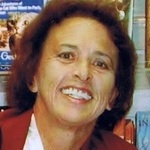At first, my memory shortcomings were blamed on my stress, rushing, employer, husband and children. It was always, it seemed to me, someone else's forgetfulness, not mine--until the day I had to pull my car over to the shoulder because I had no recollection of where I was nor where I was heading.
That incident frightened me enough that I made an immediate appointment with a neurologist for an evaluation. I was 49 years old and held a responsible paralegal position with a litigation firm. Not only did I not want to become bizarrely forgetful, my career demanded quickness of mind and actions. The neurologist talked with me for an hour and ran a few physical motion and reaction tests before referring me to "a specialist" within his own specialization. The new neurologist specialized in dementia and diagnosing it. After conducting electronic neurological base line testing, including an MRI, EEG, SPECT, PET, blood tests and a spinal tap, he said none thus far had totally explained my issues but that there were indications. He gave me simple memory identification tests and asked me to read a short story and then re-tell it to him.
At this point, he explained Early Onset Alzheimer's Disease (EOAD), which affects persons younger than 65 years old. He stated only an autopsy could diagnose it accurately but that some nuclear diagnostics such as SPECT, PET, and repeated MRI exams, when conducted periodically, could chart brain changes indicative of EOAD. With that medical wizard, I began my dance down the diagnostic yellow brick road. I was referred to researching dementia specialists at a major university and other think tanks privately funded for diagnostic and treatment innovations in EOAD. Out of fairness to my employers, I ceased working. Although cooperating completely, I was adamant that the unified diagnoses were wrong until my doctors insisted that I undertake psychological counseling for denial. I was counseled for two years before I finally acquiesced and said the words that I did have wretched dementia, EOAD. Today I resent this coercion highly. I plowed into becoming the poster woman for EOAD and began the first Patient Support Groups for patients still functioning well enough to morally support and advocate for each other. I did this because I was desperate to find others like myself: high functioning, young and diagnosed.
I have to interject here that the associations working tirelessly for better diagnosis and future treatment of Alzheimer's Disease were very supportive and sponsored my advocacy in Early Onset functioning patient support groups. At first the Alzheimer's Association admitted they did not know what to make of me since they'd never encountered an Alzheimer's patient who talked so much, much less talked back. Nonetheless, through our groups they met more people like myself and expanded their support to include patients still functioning, rather than restricting support solely to caregivers. I wrote Living in the Labyrinth, which became an international best seller and a film, Forget Me Never, starring Martin Sheen and Mia Farrow. It has been instrumental in educating the public, and especially families of Early Onset patients, of the need for better diagnostics and researching treatment for all Alzheimer's patients, particularly for those who still are high functioning.
Since the international best selling success of my book (dementia my arse!), other patients diagnosed with Early Onset Alzheimer's Disease have also become emboldened and written books eloquently revealing their own accounts of diagnostic methods, family interactions, and the personal angst they learned to live with and beyond. When my vanguard book was first announced, a medical professional said, "Alzheimer's patients can't write books. They can't even read them." I responded that such physicians are considered to be "practicing medicine" and we patients pray they eventually perfect it.
I was among the fortunate ones who, after being diagnosed with terminal dementia and working for patient advocacy, were finally re-evaluated with innovative subsequent nuclear diagnostics and neuropsychological testing. This testing determined me to be free of Early Onset Alzheimer's Disease. Usually, other minor and very treatable but mentally interfering ailments were found to be hiding under the EOAD mask. In my own case, I had suffered Transient Ischemic Arrests or minor strokes that mirrored the damages of early Alzheimer’s in the brain initially. I thank God daily for this.
Unfortunately, there were also diagnosed patients with whom I bonded in advocacy who were not fortunate and declined into the Alzheimer's abyss. Some declined slowly and others more rapidly, just one of the many puzzling re-assessments medical science had to make regarding progression of the disease. One of my best EOAD friends and advocates died within five years of diagnosis.
If you or a loved one is diagnosed or suspected of having dementia of Alzheimer's Disease or any related ailments, your initial action should be to ask that a series of electronic neurological testing be performed and repeated within six months to establish the patient's "base line." Retests will be compared periodically to the patient's previous nuclear tests as well as neuropsychological test results. Request copies of medical records for your own file, as you may consult with professionals located elsewhere. Yearly, a new "Eureka!" is sounded in research for Alzheimer's diagnostics, treatment options and, hopefully, a future cure or at least cessation of deterioration. One day our prayers will be answered and Alzheimer's Disease will be a distant disease of our ancestors.

Learn from the first-hand experiences of others.

Learn from the first-hand experiences of others.

Learn from the first-hand experiences of others.





